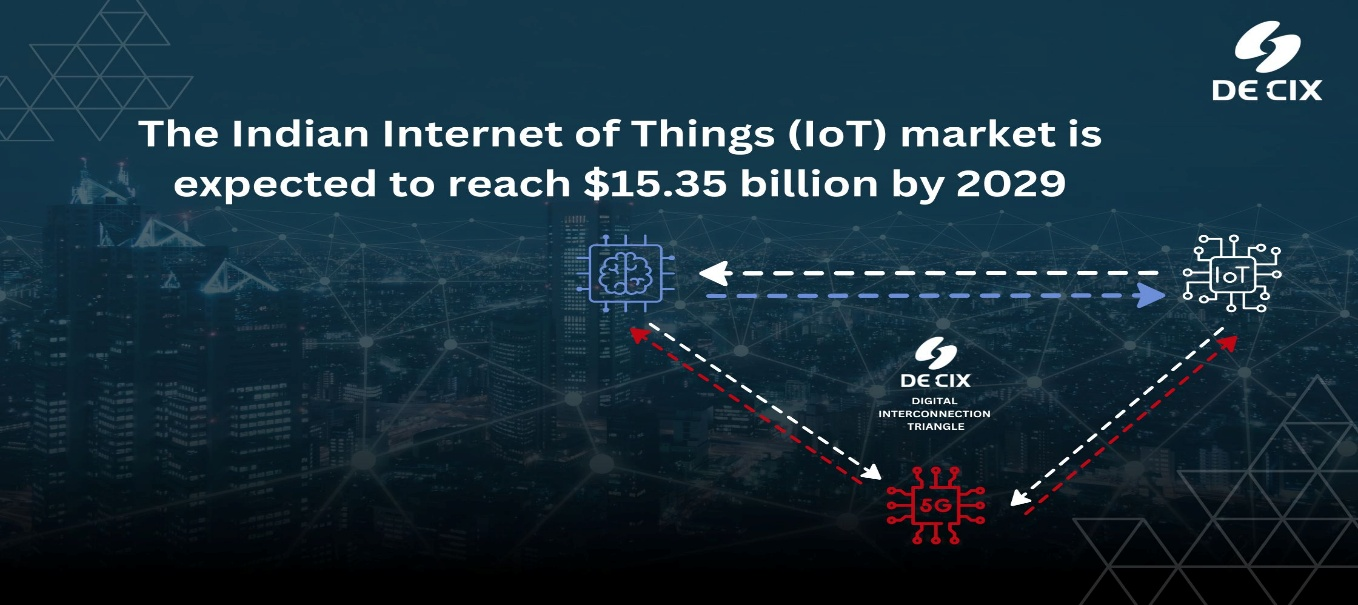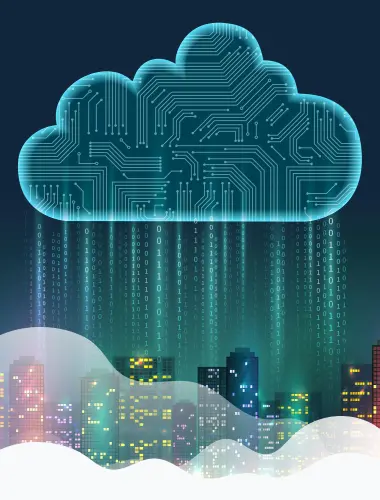Blogs
IoT – The latest Tech Trend}
The Indian Internet of Things (IoT) market is expected to reach $15.35 billion by 2029, with a compound annual growth rate (CAGR) of 21.20% from 2024
The IoT scene is buzzing, and it’s all about staying in the loop with the latest tech trends. Think about it: sensors, smart devices, better connectivity, and AI are totally changing the game across industries and in our everyday lives.
If you want your organisation to be a leader in this IoT revolution, now’s the time to dive in. Whether you’re in healthcare, manufacturing, or urban planning, the opportunities for boosting efficiency and sparking innovation are huge. As IoT keeps growing at lightning speed, being able to tap into its potential is going to set you apart from the crowd.
The Massive Growth of the Internet of Things Market

The Indian Internet of Things (IoT) market is expected to reach $15.35 billion by 2029, with a compound annual growth rate (CAGR) of 21.20% from 2024.
Several factors are propelling this remarkable growth:
Impact Across Industrie
Key Drivers Powering loT Expansion
Enhanced Connectivity
The rollout of 5G infrastructure and the development of low-power long-range protocols like NB-loI are revolutionising loT connectivity. These improvements are not only boosting data transfer speeds but also extending battery life and expanding network coverage. As a result, lot devices can now operate more efficiently in remote locations and challenging
environments.
Al Integration and Platform Evolution
Artificial Intelligence is becoming increasingly intertwined with IoT allowing for intelligent automation and data-driven decision-making. Major IoT platforms like AWS IoT and Microsoft Azure IoT are advancing their services, focusing on seamless device management, advanced analytics, and Al
Consumer-Centric Approaches
The IoT industry is witnessing a shift towards more user-friendly interfaces across mobile, hybrid, and desktop platforms. This trend is facilitating wider adoption of IT applications in daily life, with growing popularity in wearables, voice-controlled devices, and augmented reality experiences . As IoT becomes more accessible and intuitive, it’s transforming how we interact with our environment and manage our daily tasks
For instance,
Chitale Bhandu has effectively integrated IoT technology with DirectCLOUD service from DE-CIX India to improve operational efficiency and customer satisfaction. For instance, by deploying IoT sensors in the supply chain, the company can monitor the temperature and humidity of stored and transported products in real-time, ensuring the quality of sweets and snacks is maintained. Data collected from these IoT devices is securely stored and analysed through cloud services, enhancing inventory management and enabling quick responses to issues, such as a malfunctioning cooling system.
IoT also facilitates smart inventory systems that automate stock tracking, relaying this information to cloud-based applications for real-time decision-making. This combination of technologies optimises production and logistics while also improving customer experiences through connected applications that offer personalised product recommendations and notifications about new offerings.
This synergy of IoT and cloud computing leads to greater efficiency, improved product quality, and more effective customer engagement, positioning the company strongly in the competitive food industry.
Conclusion
The projected growth of the IoT market to $15.35 billion by 2029highlights the transformative impact of technological advancements such as enhanced devices, 5G connectivity, and AI integration. This evolution is not only driving efficiency and innovation across various sectors but also enabling real-time applications like supply chain tracking, remote healthcare monitoring, and intelligent urban management. As industries continue to embrace IoT solutions, we can expect significant improvements in operational effectiveness, resource management, and overall quality of life, paving the way for a more connected and efficient future.
Subscribe to Newsletter
